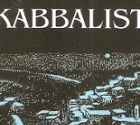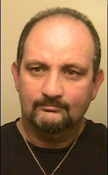
Reviewed by Mike Porter
At the beginning of his book the author sounds a warning note: “Everyone has a story to tell. This is my story.”
My mentor at the Rand Daily Mail in Johannesburg (a long, long time ago) told me something similar: “Everybody has a book in him”. Both Terence Clarkson and I wrote concise articles and stories for the newspaper. But, alas, no book.
Jason Alster understood he had “a book in him” while watching the film “Under the Tuscan Sun”. He realized that he had had similar experiences of moving and adjusting to a new country when he emigrated from Israel. “Couldn’t I write a book about it”? he thought. And this is what he did over the next few years.
The book is a guided tour of the 20+ years he spent in Israel: the pre-aliyah days, his aliyah, the ulpan, his adventures in and impressions of Israel; personal facts – such as why one should not eat shawarma (unless you want to put on weight) – and experiences in trying to adapt to a new way of life, including a near fatality during the Gulf War (in fact some of the deaths during the war were from suffocation when the wearers put on their gas masks incorrectly).
Blow-by-blow descriptions concern problems with the bank or insurance company, finding employment and afterwards becoming self-employed. Stories range from the troubles caused by a non-cooperative builder, professional details about sleep research, anxiety and the behavioral field and, tellingly, what he refers to as “the culture of deceit”.
There is a section on having fun in Israel, “My Israel A-List”. This would certainly be of interest to a new immigrant or someone who has not experienced the many facets and faces of Israel.
As this is unabashedly a personal story, some of the speculations or conclusions are open to question. Others are definitely accurate, such as the personal and distressing contact with Israeli drivers; this is one I can vouch for.
Alster makes some good points. Especially meaningful to me is his approach to children who, as he knows from his own experience, are impressionable and defenseless during these tender years. A few words from a thoughtless father or a tough-minded teacher are all it takes to push such a child into a road which can lead him downwards for the rest of his life, unless he has the luck to meet someone who can give him the positive guidance he needs to help him recover.
The problem with the book isn’t so much the loose and informal style – tenses are switched back and forth in the same paragraph but one can accept this: they fit in with the thinking of that moment – but carelessness in punctuation, repeatedly wrongly-spelled words (“lien” becomes “lean”, put me off the “trac”, “specs” of white, a “viscous” crime, and so on), scrambling of clauses, incorrect spelling of place names (travelers to Israel can tour “Antipas”, Lake Tiberias becomes Tiberius – ok, we’ll let this one pass, and ECG becomes the Israeli-style EKG). Especially disagreeable to my eye was the consistent use of the capital I for the figure one (an example, the date I99I).
Even Ernest Hemingway had an editor – there is nothing to be ashamed of in this fact. The editor is, in effect, a diamond polisher. He takes a valuable gem which – as an untreated stone – looks like a smudged piece of glass, and in polishing it he brings out all its inner qualities.
Alster’s book covers an extensive field – much of it interesting. But it seems to need that final touch to bring it into a market which is both overloaded and highly competitive.
 DEAR EDITOR 155
DEAR EDITOR 155 MODIIN ON THE MOVE
MODIIN ON THE MOVE HEALTH HINTS ONIONS FOR JAUNDICE
HEALTH HINTS ONIONS FOR JAUNDICE Robert Kwong at the Yeshiva
Robert Kwong at the Yeshiva  Friday Night with the Pope - A Book Review
Friday Night with the Pope - A Book Review The Kabbalist - A Book Review
The Kabbalist - A Book Review  Jason Alster
Jason Alster